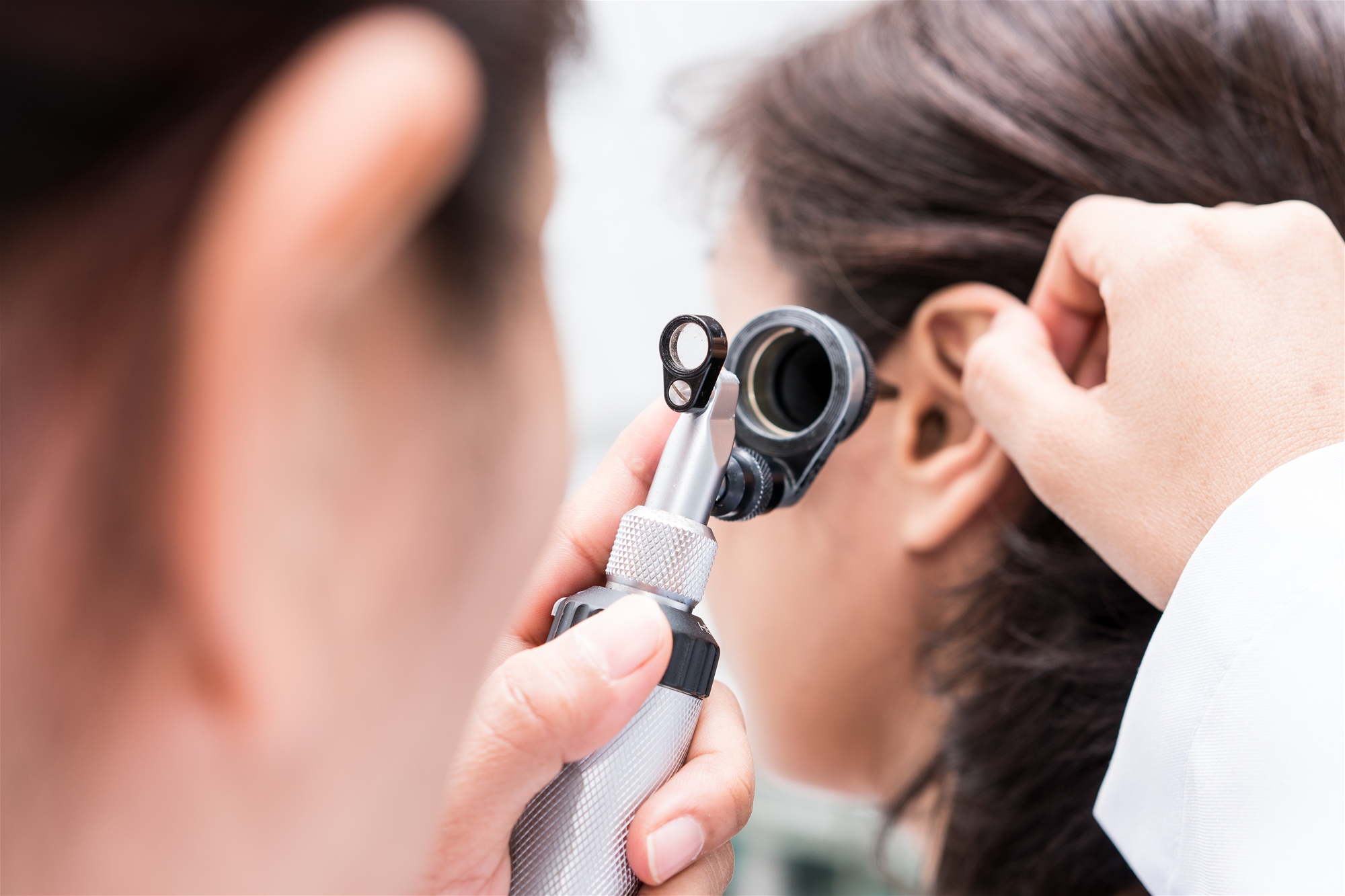Definition
Otitis media with effusion (OME) is characterized by a nonpurulent effusion in the middle ear with intact eardrums. It may be divided into pediatric and adult OME, according to the onset age.
Cause
The incidence of serous otitis media in children is very high, especially between three to six years old. It often occurs after acute otitis media or upper respiratory infection. Allergy, immunodeficiency, adenoid vegetation, sinusitis, GERD, and E-tube dysfunction may also be related to OME. The most common causes of adult OME include upper respiratory tract infection, barotrauma, and nasopharyngeal carcinoma.
Symptom
Patient with OME will present hearing impairment and aural fullness. In children with bilateral OME, these children may present with poor concentration at daytime, decreasing learning interest, watching television too closeor need louder volume than before.
Diagnostic examinations
Otoscopy, tympanometry, pure tone audiometry are useful for clinical diagnostics.

Treatment
Oral antibiotic and local treatment of nose are the primary treatments. The course is about two to three weeks. If OME responds poorly after two-week medication, middle ear effusion needle aspiration may be considered. If OME persists for more than 3 months, middle ear ventilation tube placement should be considered. The ventilation tube will be dislodged in 3 to 18 months. Adenoidectomy is indicated if adenoid vegetation is significant.
Barotrauma is usually caused by events with sudden pressure change such as air travel or diving. The managements include Eustachian tube ventilation or tympanocentesis. Nasopharyngeal tumor may cause Eustachian tube dysfunction. Nasopharyngoscopy is indicated for any adult with OME. OME after radiotherapy is common. Tympanocentesis is the primary treatment. Insertion of middle ear ventilation tube may induce chronic draining ear in these patients.
Prevention
Prevention for upper respiratory tract infection could prevent the incidence of OME. If upper respiratory tract infection develops, you should consult your family physician as soon as possible.

